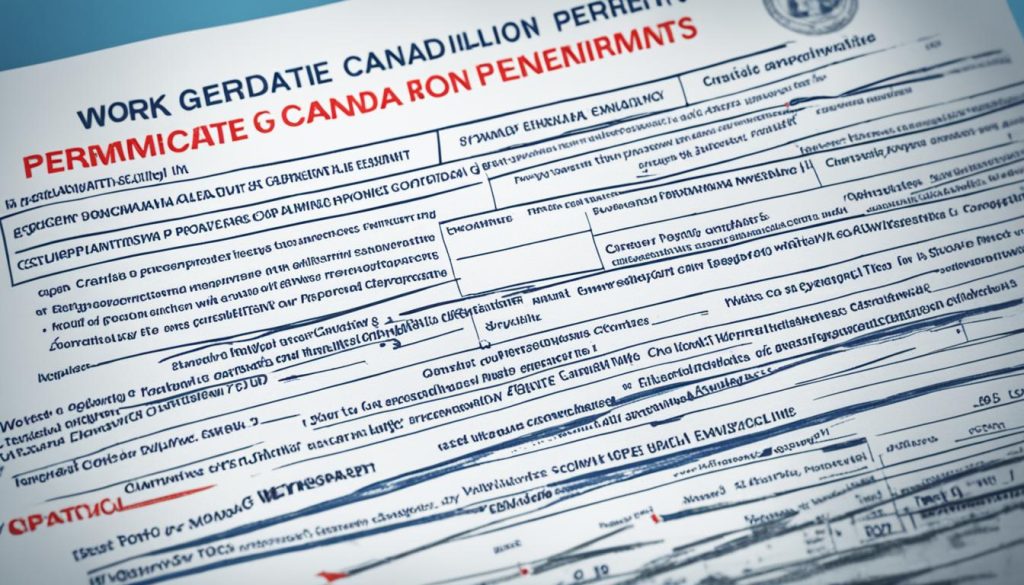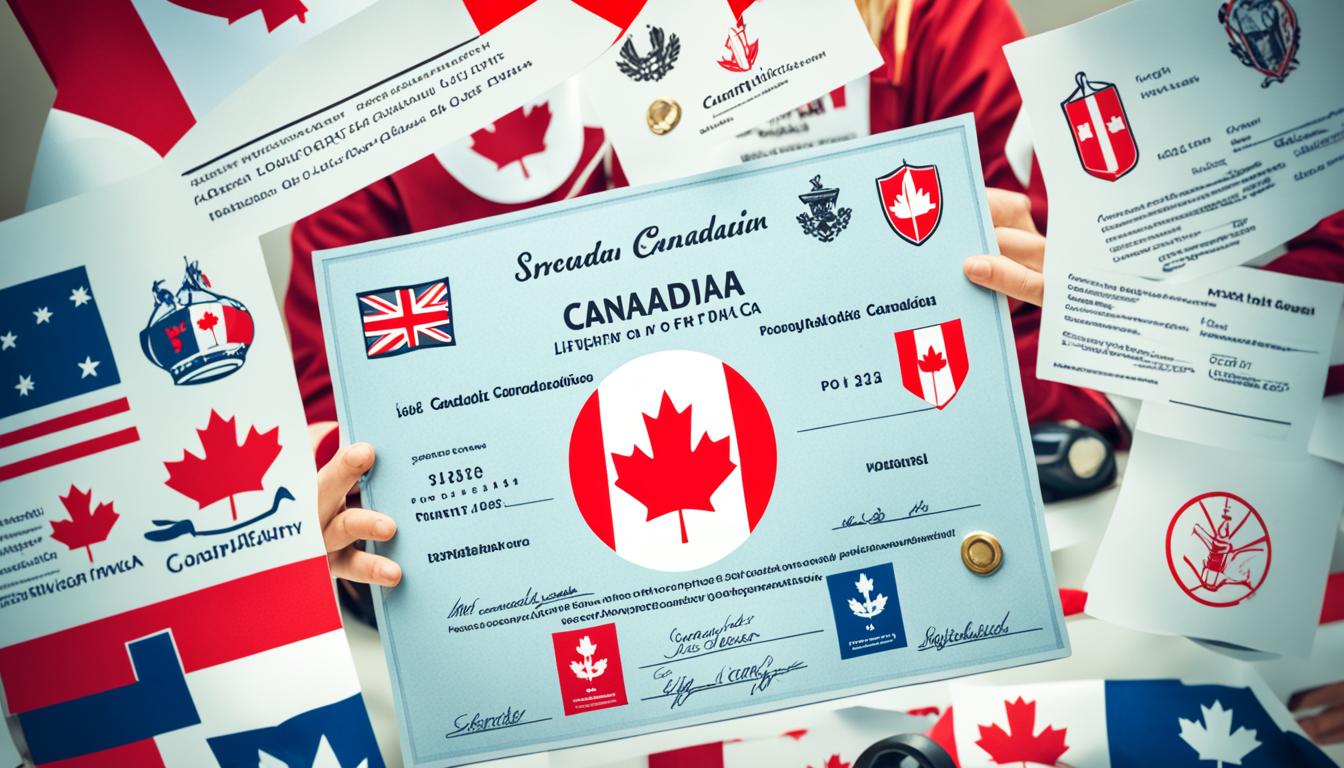Are you considering studying in Canada and wondering what opportunities await you after graduation? Look no further than the Canada Post Graduate Work Permit (PGWP), a fantastic option for international students to gain valuable work experience in the country. Obtaining this permit allows graduates to work in Canada after completing their studies, providing them with a chance to further their careers and contribute to the Canadian workforce.
In this article, we’ll delve into the details of the Post Graduate Work Permit in Canada, including its application process, processing time, and the advantages it offers to international students. So, if you’re curious about how to secure a post-graduate work visa in Canada and what it can do for your future, read on!
What is Post Graduate Work Permit?
The Post Graduate Work Permit (PGWP) is an invaluable tool for international students who have graduated from a designated learning institution (DLI) in Canada. This open work permit allows graduates to gain valuable Canadian work experience for up to 3 years, which can later be leveraged to apply for permanent residency through programs like the Canadian Experience Class and provincial nominee programs.
Eligibility for Post Graduate Work Permit
To be eligible for a PGWP, applicants must have completed a program of study of at least 8 months at a DLI in Canada. DLIs are post-secondary schools that have been approved by the Canadian government to host international students. The PGWP duration is typically linked to the length of the graduate’s educational program, ranging from 8 months to 3 years.
The Role of Designated Learning Institutions (DLI)
Designated learning institutions (DLIs) play a crucial role in the PGWP program. These are the post-secondary institutions in Canada that are approved by the government to host international students. Completing a program of study at a DLI is a fundamental requirement for PGWP eligibility.
Work Options with PGWP
With a PGWP, graduates can work for any employer, anywhere in Canada, for the duration of the permit. This open work permit flexibility allows PGWP holders to gain valuable Canadian work experience, which can later support their application for permanent residency through programs like the Canadian Experience Class and provincial nominee programs.
| Key PGWP Statistics | Details |
|---|---|
| Duration of the Post Graduation Work Permit in Canada | Up to 3 years |
| Timeline to apply for the Post-Graduation Work Permit | Within 180 days of receiving confirmation of program completion |
| Study permit validity after program completion | Becomes invalid 90 days after completion of studies or the expiry date, whichever comes first |
| Prohibition | Only one Post-Graduation Work Permit can be obtained in a lifetime |

The Application Process for Post Graduate Work Permits
Obtaining a Post Graduate Work Permit (PGWP) in Canada is a crucial step for international students seeking to continue their career journey after graduation. The application process involves several key steps that aspiring PGWP holders must navigate. Let’s explore the details of the PGWP application process.
1. Eligibility and Timing
To apply for a PGWP, international students must submit their application within 180 days of completing their studies. Applicants can apply either from within Canada, provided their study permit is still valid, or from outside of Canada.
2. Required Documents
The PGWP application process requires the submission of various supporting documents, including:
- Proof of graduation, such as an official transcript and a letter confirming program completion from the eligible Designated Learning Institution (DLI)
- A valid passport
- Details about the completed program of study
3. Application Processing Times
The processing times for PGWP applications can range from 80 to 180 days, depending on various factors. It’s essential for applicants to plan accordingly and submit their applications well within the 180-day window to avoid any delays or disruptions to their post-graduation plans.
| Application Process | Timeline |
|---|---|
| PGWP Application Submission Deadline | Within 180 days of completing studies |
| PGWP Application Processing Time | 80 to 180 days |

By understanding the key steps and requirements of the PGWP application process, international students can better prepare themselves for the next chapter of their Canadian journey.
Duration and Validity of Post Graduate Work Permits
The duration of a Post Graduate Work Permit (PGWP) in Canada is typically tied to the length of the graduate’s program of study, with a maximum of 3 years. Several factors, such as the level of study and the applicant’s passport expiry date, can influence the final PGWP duration.
1. Factors Influencing PGWP Duration
Graduates completing a program of at least 8 months but less than 2 years may receive a work permit coinciding with the program length. For programs lasting 2 years or longer, a 3-year work permit may be provided. Students who complete more than one program within 2 years can combine the lengths for an extended permit, up to a maximum of 3 years.
2. Importance of Passport Validity in PGWP Issuance
It’s crucial for applicants to ensure their passport is valid for the entire duration of their PGWP, as the work permit will not be issued for longer than the passport’s expiry date. Graduates should plan accordingly and renew their passport if necessary to maximize the PGWP duration.
3. Extending Your Post Graduate Work Permit
If required, graduates can apply to extend their PGWP, provided they meet the eligibility criteria. The application must be submitted within 180 days of the first date of receiving official written confirmation of completion of studies or 180 days from the expiration of the Study Permit, whichever comes first.
It’s important to note that starting September 1, 2023, only graduates from public and subsidized private institutions in Quebec will be eligible for the post-graduation work permit. This change has been met with disappointment from the National Association of Career Colleges, who emphasize the significant role private colleges play in Quebec and Canada.

The duration of a PGWP in Canada can vary based on factors like the level of study and passport validity, with a maximum of 3 years. Graduates can apply to extend their permits if necessary, but should be aware of the upcoming changes in eligibility criteria for the program in Quebec.
Working in Canada After Graduation
The Post Graduate Work Permit (PGWP) offers international graduates a valuable opportunity to gain work experience in Canada. With this open work permit, graduates can work for any employer, in any occupation, anywhere in the country. This flexibility allows them to explore different career paths and build upon the knowledge and skills they acquired during their studies.
The PGWP not only provides graduates with the chance to work in Canada but also enables them to continue their journey towards permanent residency. While holding this permit, graduates can explore various pathways, such as the Canadian Experience Class and Express Entry programs, or provincial nominee programs, to transition to permanent resident status.
It’s important to note that the PGWP is a one-time opportunity, and graduates should make the most of their time in Canada. The recommended timeframe to apply for the PGWP is within 90 days of completing their program, as the study permit automatically expires 90 days after graduation unless the graduate is accepted into further education.
Graduates should be mindful of the PGWP’s duration, which typically ranges from one to three years, depending on the length of their full-time program. They can also explore the possibility of extending their stay in Canada after the PGWP expires through various immigration pathways, such as the Canadian Experience Class and Express Entry programs.
For more detailed information and guidance on navigating the work options after PGWP, it is recommended to consult with immigration consultants or seek advice from the designated learning institution (DLI) where the graduate completed their studies.

Transitioning from PGWP to Permanent Residency
The Post Graduate Work Permit (PGWP) in Canada is designed to provide a pathway for international students to gain valuable Canadian work experience and transition to permanent residency. Graduates with a PGWP can leverage their Canadian education and work experience to apply for permanent residence through programs like the Canadian Experience Class, Express Entry, provincial nominee programs, and the Quebec Experience Class.
1. Canadian Experience Class and Express Entry
The Canadian Experience Class (CEC) is an immigration pathway that allows individuals with at least one year of skilled work experience in Canada to apply for permanent residence. The Express Entry system manages the application process for the CEC, as well as the Federal Skilled Worker Program and the Federal Skilled Trades Program. Candidates in the Express Entry pool receive a Comprehensive Ranking System (CRS) score based on factors such as education, language skills, and work experience, with the highest-scoring individuals receiving invitations to apply for permanent residence.
2. Provincial Nominee Programs and Quebec Experience Class
In addition to the CEC and Express Entry, international graduates can also explore provincial nominee programs (PNPs) and the Quebec Experience Class (QEC) as pathways to permanent residency. PNPs are available in nearly every province and territory, with many streams specifically designed for international students and graduates who have studied and worked in Canada. The QEC is a unique program for those who have studied and gained work experience in the province of Quebec.
3. Strategies for Extending Your Stay Post-PGWP
Developing a strategic plan to extend one’s stay in Canada beyond the PGWP can help graduates maximize their chances of obtaining permanent residency. Some key strategies include:
- Pursuing additional education or training in Canada to extend the duration of your PGWP and gain more valuable Canadian work experience.
- Applying for a bridging open work permit while your permanent residency application is being processed, allowing you to continue working in Canada.
- Exploring alternative work permit options, such as the International Mobility Program, which allows employers to hire temporary foreign workers without a labor market impact assessment.
By leveraging the various immigration pathways available and strategically planning their stay in Canada, PGWP holders can increase their chances of successfully transitioning to permanent residency.
Conclusion
The Post-Graduate Work Permit (PGWP) is a valuable program that allows international students who have graduated from a Canadian designated learning institution to gain valuable work experience in Canada. By leveraging the PGWP, graduates can build their Canadian work history, which can then be used to apply for permanent residency through various immigration programs. The PGWP is a crucial step in the journey towards permanent residence for many international students in Canada.
As the PGWP program continues to evolve, it is essential for international students to stay up-to-date with the latest eligibility requirements and application processes. By understanding the nuances of the program, such as the impact of online study, passport validity, and the ability to combine multiple programs, graduates can maximize their chances of successfully obtaining a PGWP and paving the way for their future in Canada.
Ultimately, the PGWP program serves as a bridge, enabling international graduates to transition from their studies to meaningful employment and, potentially, permanent residency in Canada. By taking advantage of this opportunity, international students can enhance their career prospects, contribute to the Canadian economy, and build a fulfilling life in this vibrant and diverse country.
FAQ
1. What is the Post Graduate Work Permit (PGWP)?
The Post Graduate Work Permit (PGWP) is an open work permit that allows international students who have graduated from a designated learning institution (DLI) in Canada to gain valuable Canadian work experience. The PGWP is a key pathway for international students to transition from their studies to permanent residency in Canada.
2. Who is eligible for the Post Graduate Work Permit?
To be eligible for a PGWP, applicants must have completed a program of study of at least 8 months at a designated learning institution in Canada. DLIs are post-secondary schools that have been approved by the Canadian government to host international students.
3. What are the work options with a Post Graduate Work Permit?
With a PGWP, graduates can work for any employer, in any occupation, anywhere in Canada. This open work permit provides graduates with the flexibility to gain valuable Canadian work experience and explore different career paths.
4. How do I apply for a Post Graduate Work Permit?
To apply for a Post Graduate Work Permit, international students must submit their application within 180 days of completing their studies. Applicants can apply from within Canada, provided their study permit is still valid, or from outside of Canada. The application process involves submitting various documents, such as proof of graduation, a valid passport, and details about the program of study.
5. How long is the Post Graduate Work Permit valid for?
The duration of a Post Graduate Work Permit is typically tied to the length of the graduate’s program of study, up to a maximum of 3 years. Factors like the level of study and the applicant’s passport expiry date can influence the final PGWP duration.
6. Can I extend my Post Graduate Work Permit?
If necessary, graduates can apply to extend their PGWP, provided they meet the eligibility criteria.
7. How can I transition from a Post Graduate Work Permit to permanent residency?
Graduates with a PGWP can leverage their Canadian education and work experience to apply for permanent residence through programs like the Canadian Experience Class, Express Entry, provincial nominee programs, and the Quebec Experience Class. Developing a strategic plan to extend one’s stay in Canada beyond the PGWP can help graduates maximize their chances of obtaining permanent residency.




